The Locksmithing Profession Explained: Training, Tools & Career Paths
Locksmithing is one of the few professions where practical knowledge, problem-solving skills, and a steady hand can open the door to a rewarding career, both literally and figuratively. Whether you’re looking to change careers, gain a new skill set, or start your own locksmith business, understanding the fundamentals is the first step. In this guide, we’ll walk you through everything from training courses and tools to real-world opportunities and specialisms.
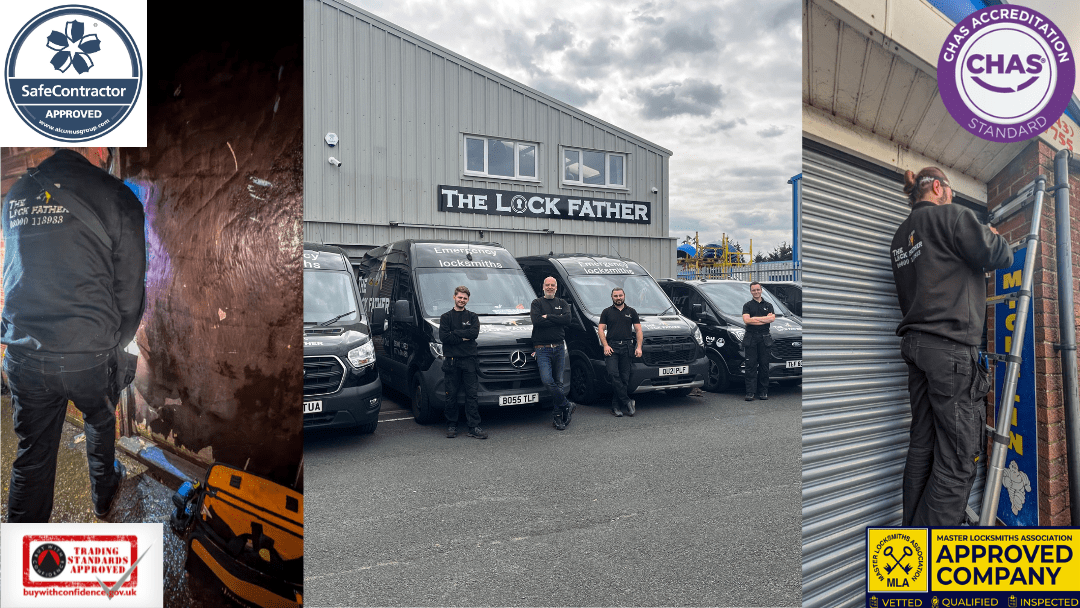
What Is Locksmithing?
Locksmithing is a skilled trade that involves working with locks, keys, and security systems. It includes installing, repairing, and maintaining mechanical and electronic locks, as well as gaining access when customers are locked out.
Locksmithing encompasses a wide range of specialisations, including residential locksmithing for homes, commercial locksmithing for businesses, automotive locksmithing for vehicles, and safe locksmithing for secure storage. Each type requires specific tools, techniques, and training, but all play an essential role in ensuring public safety and property security.
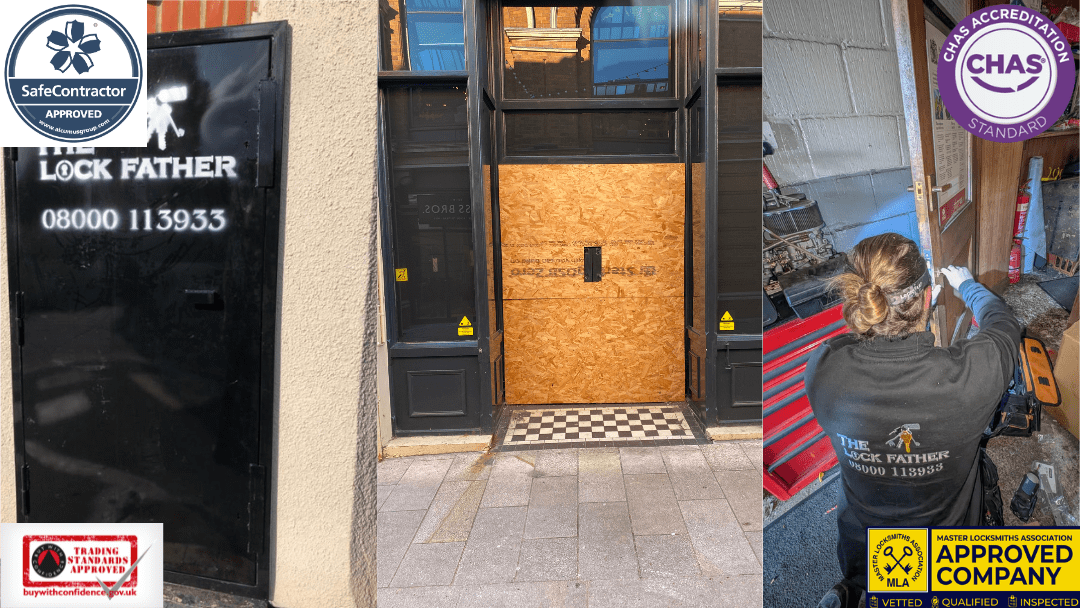
Why Locksmithing Is a Growing Profession?
With increasing demand for both residential and commercial security, locksmithing has evolved beyond simple lock repairs. Commercial locksmithing, for example, encompasses a wide range of specialist services, including gaining entry for Enforcement Agents, shutter repair, and reprogramming or replacing shutter fobs for shops and warehouses.
These jobs require in-depth knowledge of building access systems and are crucial to maintaining business security and operational continuity.
Auto locksmithing is another rapidly expanding area, with locksmiths specialising in vehicle entry, transponder key programming, and car key cutting. As modern cars become more complex, the need for fully trained auto locksmiths who can quickly replace lost keys or respond to emergency vehicle lockouts continues to grow.
From emergency callouts to fitting advanced access control systems, the locksmithing profession offers a wide array of career paths to meet the evolving security needs of today’s world.
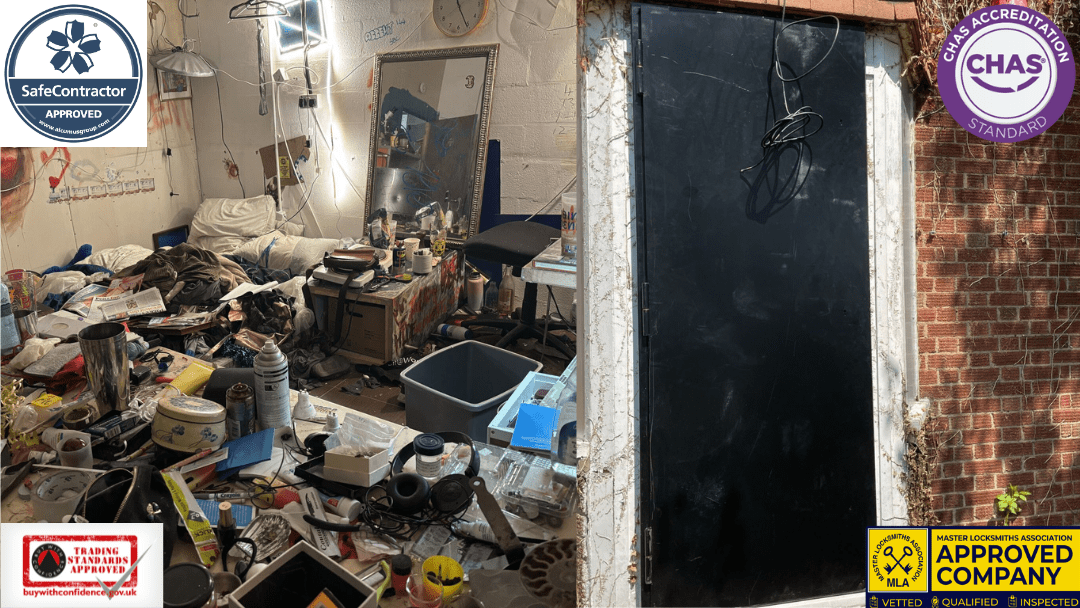
Who Can Become a Locksmith?
Anyone with a clean criminal record, a willingness to learn, and a hands-on approach can train to become a locksmith. While no formal qualifications are required to start, most locksmith training providers will ask for a criminal records check. People with trade experience, such as carpenters, often transition well into locksmithing due to their existing knowledge of tools, woodwork, and the use of chisels. Their understanding of door structures and precision craftsmanship can give them a strong head start when it comes to fitting locks, adjusting door closers, or working with mortice locks.
Key Skills Every Locksmith Needs
Essential skills include mechanical aptitude, customer service, attention to detail, and the ability to work under pressure. A good locksmith is confident in their ability to carry out repairs, use specialist tools, and diagnose issues on the spot.
If you plan to be self-employed, learning how to run a business is crucial.
Types of Locksmith Services
Locksmiths offer a broad range of services, including key cutting, lock replacement, alarm system installation, car key programming, and safe opening. In commercial locksmithing, this can extend to securing vacant properties by boarding up windows and doors after break-ins or during repossession, as well as burglary repairs to damaged locks and frames. Auto locksmiths frequently help with lost or damaged car keys, car key cutting, and reprogramming transponders. Many locksmiths choose to specialise in one or more areas to offer expert-level services tailored to the different needs of their clients.
Understanding General Locksmithing
General locksmithing involves working with residential and commercial customers on door locks, windows, padlocks, and gate systems. This is the foundation of the trade and an important area to master before diversifying.
The Role of an Auto Locksmith
Auto locksmiths specialise in vehicle entry and replacement car keys. Using specialist tools and diagnostic equipment, they help drivers who have locked their keys inside or lost them entirely.
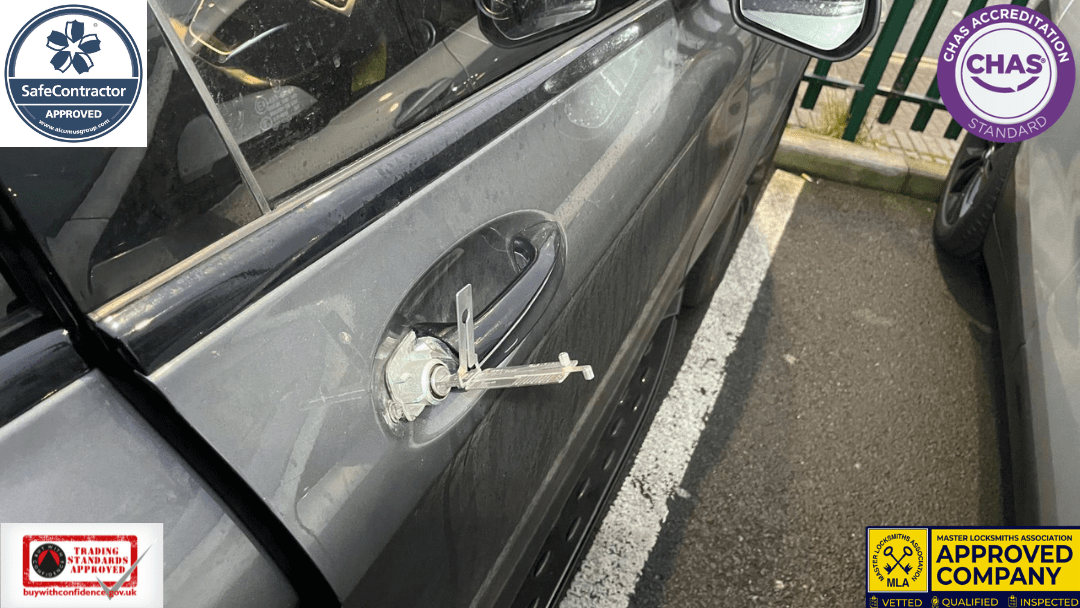
The Importance of Emergency Locksmith Services
Emergency locksmiths provide urgent assistance, often within an hour. These services include helping customers who have lost keys, been locked out, or experienced break-ins. It’s a vital public service that requires reliability and skill. Emergency callouts, especially those during unsociable hours like 2 am, are often the most expensive due to the immediate response required and the inconvenience of working outside regular hours. Customers value the peace of mind that comes from knowing help is available at any time, day or night.
Specialising as a Safe Engineer
Safe engineers focus on safe opening, repair, and removal. This high-responsibility role often requires advanced courses and a deeper understanding of locking mechanisms and anti-tamper designs.
Due to the higher skill level, they will cost more, and the courses and tutors are harder to find.
Exploring Access Control Systems and Alarm Systems
Access control and alarm systems are now an integral part of a locksmith’s skill set. This includes electronic door entry systems, intercoms, CCTV integration, and key card systems for commercial clients.
There are two types of access control, mechanical and electrical.
What Is Key Cutting and How Does It Work?
Key cutting is the precise duplication of keys using key-cutting machines. Whether it’s for mortice locks or modern cylinder locks, accurate cutting is an essential part of everyday locksmithing work.
The Master Locksmiths Association offers courses for those interested.
Understanding Door Closers and Mortice Locks
Commercial buildings often require door closers and mortice locks for fire safety and security. These devices need regular maintenance and proper installation, tasks commonly performed by locksmiths.
What Tools Do Locksmiths Use?
From lock-picking kits to drills, plug spinners, and tension tools, locksmiths must know their tools inside and out. Investing in high-quality equipment is a crucial factor in achieving efficiency and professionalism.
Do You Need Formal Locksmith Training?
While not legally required, most new locksmiths begin with a recognised training course. Formal locksmith training ensures you develop the correct techniques and safety practices from the outset.
However, passing your Master Locksmiths Association exams will give you greater access to commercial locksmithing work.
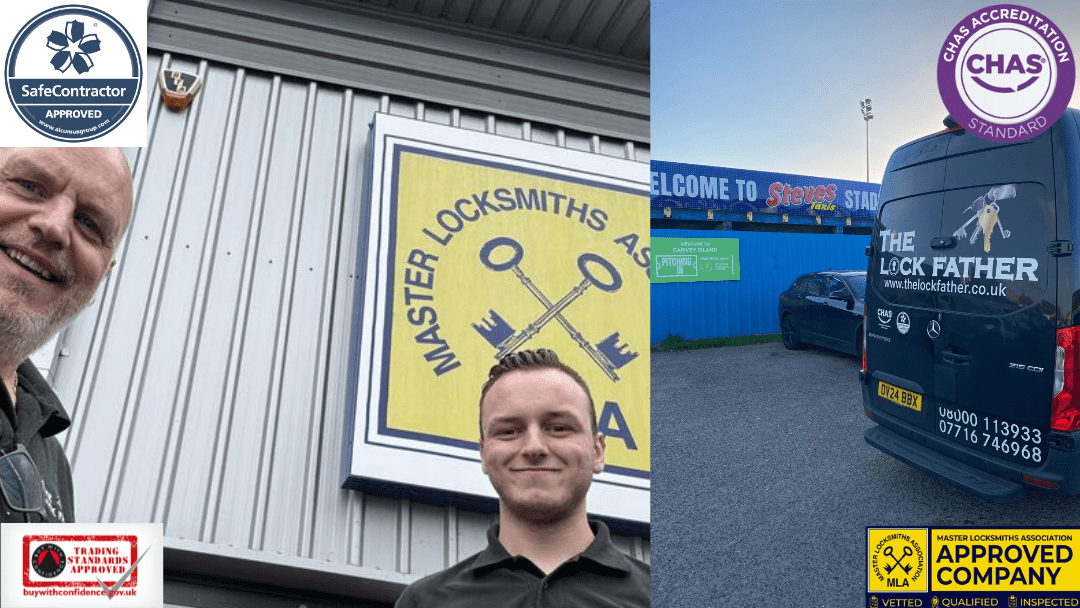
Choosing the Right Locksmith Training Course
Look for locksmith training courses offered by reputable providers, ideally affiliated with the Master Locksmiths Association. Courses should offer hands-on experience and cover a range of services.
Advanced Courses for Experienced Locksmiths
After gaining core skills, locksmiths can enrol in advanced courses that cover digital security systems, safe engineering, and complex lock mechanisms. These boost credibility and open up higher-paying jobs.
Training with the Master Locksmiths Association
The Master Locksmiths Association (MLA) is the UK’s leading trade body. Their approved locksmith courses and assessments ensure high standards and professionalism across the industry.
What You’ll Learn on Locksmith Training Courses
Topics include key cutting, lock picking, safe opening, fitting locks, and using key cutting machines. Training also covers customer interaction and best practices for public safety.
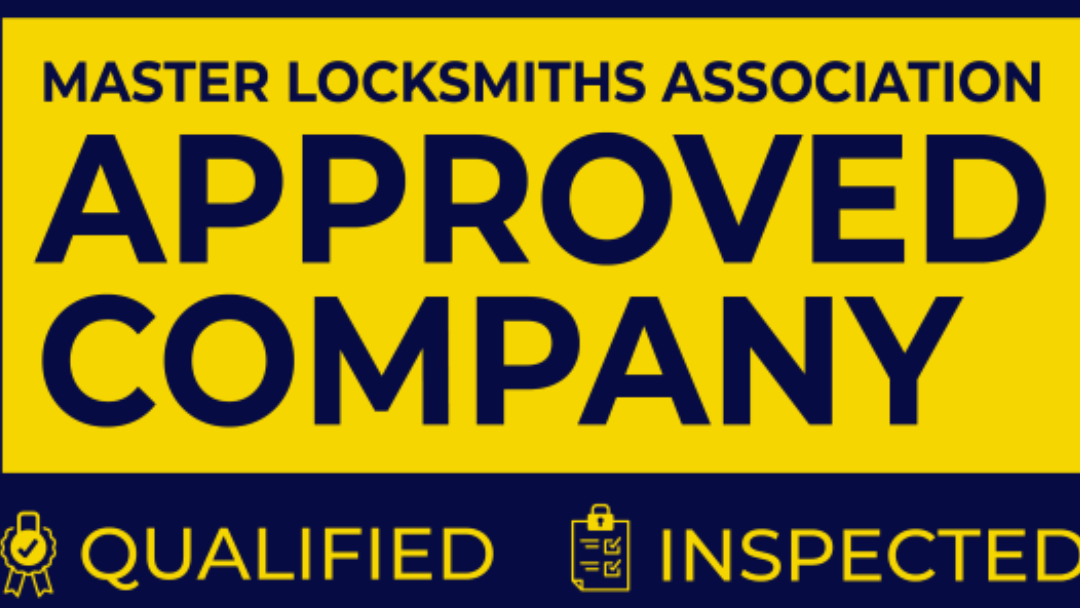
Starting Your Own Locksmith Business
Many locksmiths aspire to own and operate their own businesses. This offers flexibility, higher earnings, and the satisfaction of being your own boss. You’ll need to understand marketing, pricing, and customer service.
Working with a National Locksmith Company
Some new locksmiths choose to work for a national locksmith company to gain experience. This often includes training, job assignments, and access to a broader client base.
The Costs of Locksmith Training and Tools
Training course fees vary but are usually a few thousand pounds. Add to this the cost of tools, key cutting machines, and a van or vehicle if you’re going mobile. Another important consideration is the initial cost of stock. Locks come in many different sizes and types, so you’ll need to carry a range of euro cylinder locks and mortice locks to cover the most common fitting requirements. In addition, you’ll want to stock UPVC gearboxes; there are around 20 common types and sizes, so you can complete door mechanism repairs on-site without needing to order parts. This initial outlay ensures you’re prepared for a wide variety of jobs and can respond quickly to customer needs.
Earning Potential and How Much You Could Get Paid
Earnings vary by experience and location. In London, emergency locksmiths can earn more due to demand. Self-employed locksmiths often earn more than in salaried roles.
A Day in the Life of a Locksmith
Days can range from planned lock replacements to urgent callouts and vehicle lockouts. No two days are the same, and flexibility is key. Once you’re established, you may also build relationships with regular commercial clients such as estate agents, property managers, and Enforcement Agents. These clients often provide pre-planned work, including lock changes, gaining access to properties, shutter repairs, and eviction support. This kind of steady, reliable workflow can offer a welcome balance to the unpredictability of emergency callouts, helping to build long-term business stability.
Advice from Experienced Locksmiths
Experienced locksmiths advise new starters to invest in quality tools, stay up to date with training, and prioritise customer service. Many locksmiths also recommend specialising early.
Is Locksmithing the Right Career for You?
If you enjoy working with your hands, solving problems, and helping customers in need, locksmithing could be your ideal career. With the right training and mindset, you can unlock a rewarding future.

